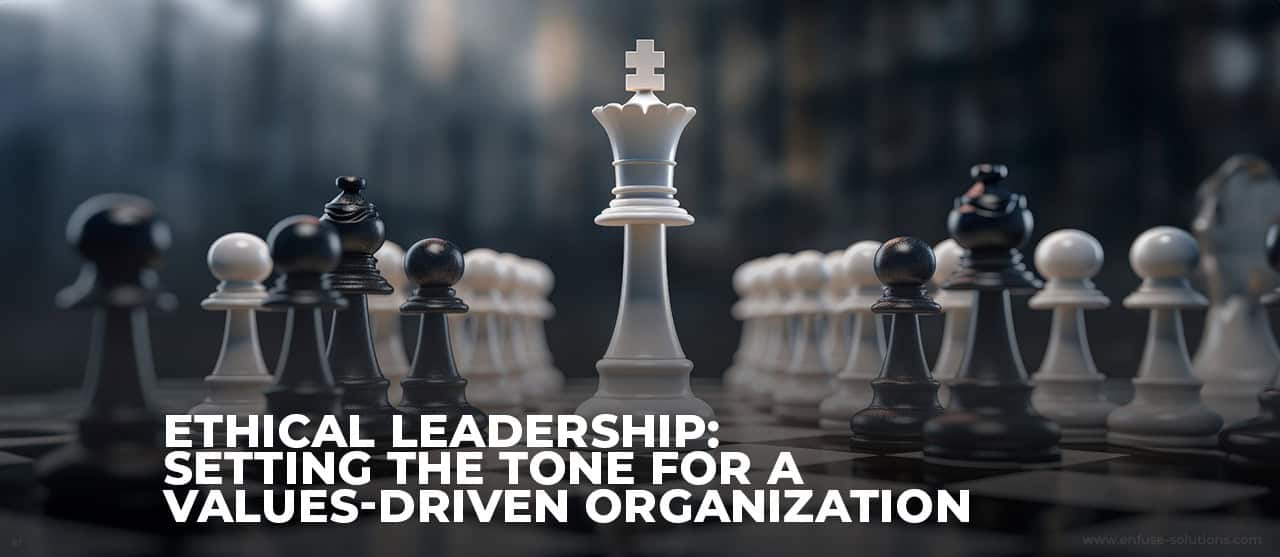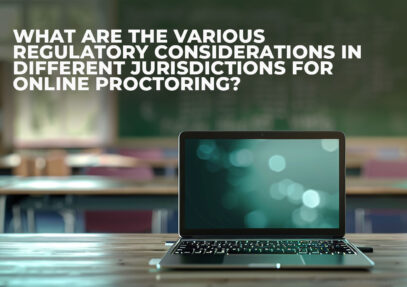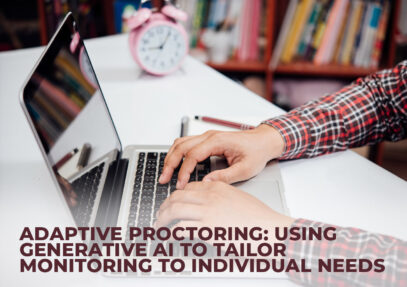
In the dynamic and ever-evolving landscape of the modern workplace, ethical leadership has emerged as a pivotal factor in shaping the success and integrity of organizations. The significance of ethical leadership is underscored by recent statistics, with a 2021 Gallup poll revealing that both Generation Z and millennials highly prioritize ethical leadership.
These generations, which currently constitute approximately 38% of the global workforce and are projected to rise to around 58% by 2030, demonstrate a resolute commitment to their values and ethics. In this context, we explore the imperative role of ethical leadership in “Ethical Leadership: Setting the Tone for a Values-Driven Organization.”
The Importance Of Ethical Leadership
The ethical leadership in a values-driven organization is critical to success. And setting a tone of ethical leadership is often challenging. Leaders are faced with the question of how to motivate employees to work that goes above and beyond the call while maintaining a value-driven company culture. To answer this question, let’s begin with a definition of ethical leadership: “The ethics, principles, and standards that guide decision making, actions and behavior in organizations.”
Here are a few points that are essential for setting the right stage for building a values-driven organization –
1. Articulating And Communicating Organizational Values
One of the cornerstones of ethical leadership is the clear articulation and effective communication of organizational values. This process starts with leadership defining the core principles and values that the organization upholds. These values include integrity, transparency, respect, social responsibility, and more.
Ethical leaders ensure that these values are not mere words on paper but are translated into actionable guidelines that shape the organization’s culture and practices. Effective communication is key, and leaders can employ various channels, such as official statements, town hall meetings, and internal messaging platforms, to convey these values to every employee.
2. Embedding Ethics In Organizational Practices & Decision-Making Frameworks
Ethical leadership goes beyond just the value statements. It involves embedding ethics in the very DNA of an organization. Leaders are responsible for developing robust decision-making frameworks that incorporate ethical considerations. This extends to the processes for hiring, performance evaluation, conflict resolution, and strategic planning. Ethical leaders actively promote these ethical practices, ensuring that they are consistently applied across the organization.
3. Establishing A Strong Moral Compass And Ensuring Employee Engagement
Ethical leaders set a strong moral compass for the organization by exemplifying ethical behavior and decision-making. This behavior influences employee engagement significantly. When employees see their leaders making decisions based on ethical values, they are more likely to engage actively in their roles. They feel a stronger connection to the organization’s mission and values, making them more motivated and productive.
4. Building Trust And Credibility
Trust is a foundational element of any organization and ethical leadership is instrumental in building trust both within the organization and with external stakeholders. Trust is cultivated through consistent adherence to ethical values, transparency in decision-making, and accountability for actions. In turn, this trust boosts the organization’s credibility, making it a respected entity in its industry.
5. Fostering Employee Morale And Engagement
Ethical leadership is closely tied to high employee morale and engagement. When employees witness leaders making ethical decisions and prioritizing their well-being, it leads to a positive work environment. This fosters higher levels of morale, job satisfaction, and overall engagement. Ethical leaders recognize that motivated and engaged employees are more likely to be productive and innovative.
6. Mitigating Ethical Risks And Crises
No organization is immune to ethical risks and potential crises. Ethical leaders are proactive in identifying and mitigating these risks. They implement systems and policies that reduce the likelihood of ethical breaches and have contingency plans in place to handle crises should they arise. Ethical leadership is about not just preventing ethical issues but addressing them head-on when they occur, demonstrating a commitment to rectifying wrongs.
7. Cultivating Ethical Awareness
Ethical leaders take it upon themselves to cultivate ethical awareness throughout the organization. This involves ongoing training and education to ensure that employees understand the organization’s values and how to apply them in their roles. It’s about creating a culture where ethical behavior is not just a requirement but a shared commitment by everyone.
Ethical leadership plays a pivotal role in shaping the culture, values, and practices of an organization. It entails effective communication of values, integration of ethics into decision-making processes, setting a moral compass, fostering trust and employee engagement, handling ethical risks, and cultivating ethical awareness. Ultimately, it sets the tone for a values-driven organization where integrity and responsibility are at the core of all actions.
Building Ethical Leadership – Let’s Talk About The Challenges
Ethical leadership, while a noble pursuit, has its challenges. Leaders who strive to uphold ethical values often find themselves in complex situations that require tact, empathy, and resilience.
Let’s delve into some of the key challenges faced by ethical leaders.
1. Navigating Ethical Gray Areas
One of the primary challenges in ethical leadership is navigating the treacherous waters of ethical gray areas. These are situations where the right course of action is not immediately clear, and leaders must make decisions in a morally ambiguous context. These gray areas often arise when values or principles conflict and leaders must weigh the consequences of their decisions.
To navigate such complexities, ethical leaders need a well-defined moral compass. They rely on the organization’s core values and ethical framework to guide their decisions. Additionally, they often seek advice from mentors or ethical committees to ensure their choices are well-considered and aligned with the organization’s principles.
2. Dealing With Ethical Failures
Even the most ethical leaders may face situations where ethical failures occur within their organization. These failures could be the result of a breach of ethical conduct, an oversight in compliance, or the actions of rogue employees. Dealing with such failures is a challenging aspect of ethical leadership.
When ethical failures happen, ethical leaders must respond swiftly and decisively. This often involves conducting thorough investigations to understand the root causes of the failure. Once the causes are identified, leaders must take corrective actions, which may include disciplinary measures, process improvements, or enhanced training. The goal is not only to rectify the immediate issue but also to prevent future ethical lapses.
3. Resistance To Ethical Leadership
Overcoming resistance to ethical leadership is challenging. Some employees or stakeholders may resist ethical initiatives, often due to fear of change, skepticism about leadership sincerity, or concerns about the impact on the organization’s financial performance. Ethical leaders address resistance through transparent communication, articulation of the rationale behind ethical decisions, and engaging in ongoing dialogues to understand and alleviate concerns.
Ethical Leadership: The Key To A Values-Driven Organization
Ethical leadership is the foundation of a values-driven organization. It is every leader in a company’s responsibility to set the tone for ethical behavior and create a culture where everyone feels empowered to do the right thing. By modeling ethical behavior, communicating your values clearly, and creating a system of rewards and recognition for ethical behavior, you can create an organization where everyone is aligned and committed to doing the right thing.
At EnFuse, we believe that ethical leadership is essential to our success. We are committed to creating a workplace where everyone feels respected and valued, and where everyone is empowered to do their best work. We encourage our leaders to set the tone for ethical behavior and to model the values that we hold dear. To know more about our services, get in touch with us here.

















Comment